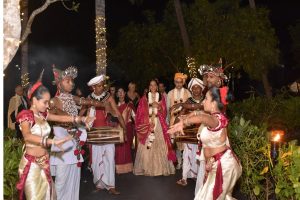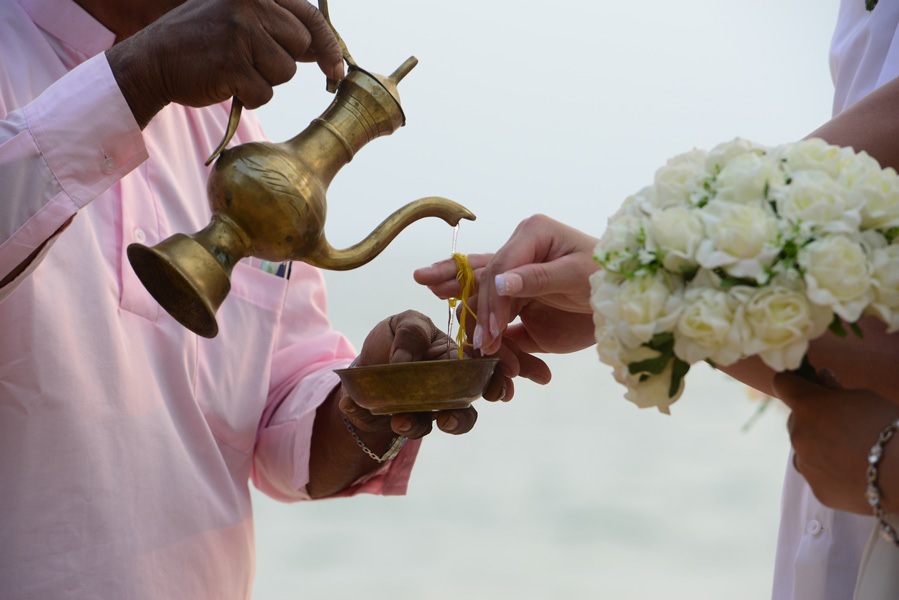Sri Lanka has always been an ideal destination for an exotic wedding ceremony and honeymoon, and currently it enjoys the third spot on most popular destination for weddings and honeymoons in the world

Strategic Market Positioning:
In a landscape dominated by destinations like Italy, France, and the Caribbean, Sri Lanka can strategically position itself as a unique and cost-effective alternative. Emphasizing its diverse landscapes, cultural richness, and untapped beauty, Sri Lanka can attract couples seeking an off-the-beaten-path wedding experience.
Diverse Venue Options:
The island nation’s varied topography, from pristine beaches to lush mountains, provides an array of picturesque settings for weddings. To capitalize on this diversity, the industry can focus on developing and marketing distinct venue options, catering to couples with different preferences, from beachfront ceremonies to mountainous landscapes.
Architectural Heritage as Event Spaces:
Sri Lanka boasts a rich architectural heritage, with colonial houses and historical sites that can be repurposed as unique event spaces. Collaborations between the private sector and conservation efforts can turn these structures into exclusive wedding venues, blending historical charm with modern luxury.
Enhancing Hospitality Standards:
As competition intensifies globally, Sri Lanka’s destination wedding industry must prioritize hospitality excellence. Training staff, ensuring seamless event management, and offering top-notch services can elevate Sri Lanka’s reputation as a destination committed to providing an unparalleled wedding experience.
Infrastructure Development:
Investing in basic infrastructure is imperative to transform scenic locations into iconic stay-in destinations. Improved transportation, accommodation, and event facilities will not only enhance the overall wedding experience but also attract couples looking for convenience and comfort.
Cultural Immersion and Authenticity:
Sri Lanka’s rich cultural tapestry can be a unique selling point for the destination wedding industry. Collaborations with local communities can infuse traditional elements into weddings, providing couples and guests with an authentic and culturally immersive experience. This approach distinguishes Sri Lanka from competitors.

Collaborative Industry Growth:
The growth of the destination wedding industry in Sri Lanka hinges on collaborative efforts. Government bodies, tourism boards, hospitality sectors, and event planners need to collaborate to create an environment conducive to hosting weddings. Streamlining regulations, offering incentives, and collectively marketing Sri Lanka as a wedding destination will propel industry growth.
Global Competitors and Market Trends:
To stay competitive, industry stakeholders in Sri Lanka must closely monitor global wedding tourism trends. Keeping abreast of what competitors offer, understanding evolving preferences of couples, and incorporating innovative elements into wedding packages will help Sri Lanka stay ahead in this dynamic market.







